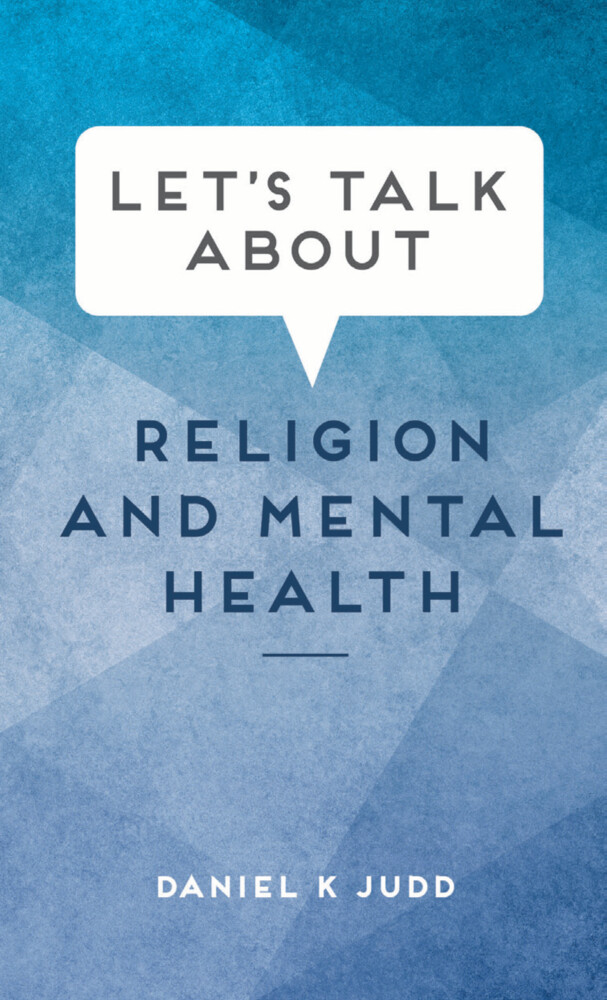The following is excerpted from Let's Talk About Religion and Mental Health and was originally shared on LDSLiving.com in September 2021.
The Old Testament includes many accounts of those who struggled with emotional and spiritual pain, including the story of Hannah, the mother of the prophet Samuel. Before Hannah gave birth to Samuel, she suffered for many years because of her inability to conceive and bear children. Hannah was also burdened by the constant criticism of her husband’s second wife, Peninnah. The scriptural account begins by describing the difficult events surrounding the yearly trip made by Hannah’s husband, Elkanah, and his wives to the temple in Jerusalem to worship God by offering sacrifice:
And this man went up out of his city yearly to worship and to sacrifice unto the Lord of hosts in Shiloh. . . . And when the time was that Elkanah offered [sacrifice at the temple], he gave to Peninnah his wife, and to all her sons and her daughters, portions [of the sacrifice]: But unto Hannah he gave a worthy portion; for he loved Hannah: but the Lord had shut up her womb. And her adversary [Peninnah] also provoked her sore, for to make her fret, because the Lord had shut up her womb. And as he did so year by year, when she went up to the house of the Lord, so she provoked her; therefore she wept, and did not eat. (1 Sam. 1:3–7)
The Diagnostic and Statistical Manual, the guide used by mental health professionals to diagnose and treat mental illness, includes the following criteria for the diagnosis of de-pression: (1) “decrease or increase in appetite nearly every day” and (2) “depressed mood most of the day, nearly every day, as indicated by either subjective report (e.g., feels sad, empty, hopeless) or observation made by others (e.g., appears tearful).” These symptoms usually last for several weeks at the very least.
Elkanah attempted to comfort Hannah by saying, “Why weepest thou? and why eatest thou not? and why is thy heart grieved? am not I better to thee than ten sons?” (1 Sam. 1:8). Though Hannah’s response is not recorded, it is evident that her husband’s attempt to comfort her by encouraging her to “count her blessings” was unsuccessful. She continued to seek relief through prayer: “And she was in bitterness of soul, and prayed unto the Lord, and wept sore. And she vowed a vow, and said, O Lord of hosts, if thou wilt indeed look on the affliction of thine handmaid, and remember me, and not forget thine handmaid, but wilt give unto thine handmaid a man child, then I will give him unto the Lord all the days of his life, and there shall no razor come upon his head” (1 Sam. 1:10–11).
Eli, the presiding priest at the temple, observed Hannah’s grief-filled prayer and concluded that she had been drinking alcohol and that her thoughts and actions had become compromised: “And it came to pass, as she continued praying before the Lord, that Eli marked [i.e., observed] her mouth. Now Hannah, she spake in her heart; only her lips moved, but her voice was not heard: therefore Eli thought she had been drunken” (1 Sam. 1:12–13). The use of alcohol as a means of dealing with despair appears to have been a problem anciently as it is in the present, but alcohol wasn’t among Hannah’s problems. Her despair, while difficult to bear, motivated her to turn to the only legitimate source of healing she knew—God.
The next several verses include an informative and revealing conversation between Hannah and the high priest Eli: “And Eli said unto her, How long wilt thou be drunken? put away thy wine from thee. And Hannah answered and said, No, my lord, I am a woman of a sorrowful spirit: I have drunk neither wine nor strong drink, but have poured out my soul before the Lord. Count not thine handmaid for a daughter of Belial [wickedness or worthlessness]: for out of the abundance of my complaint and grief have I spoken hitherto” (1 Sam. 1:14–16). Eli then instructed and promised Hannah: “Go in peace: and the God of Israel grant thee thy petition that thou hast asked of him.” Hannah responded in faith, “Let thine handmaid find grace in thy sight.” We then learn that Hannah “went her way, and did eat, and her countenance was no more sad” (1 Sam. 1:17–18).
Hannah and Elkanah returned home, and in due time Hannah conceived and gave birth to a son—Samuel. Hannah was true to the vow she had made before Samuel was conceived, for at the appropriate time she took him to the temple and “lent him to the Lord” (1 Sam. 1:28). Hannah’s maternal and symbolic sacrifice demonstrates that the vow she took during her depressed state represented her love for the Lord and was not simply a way of bargaining with God to fulfill her own desires. It was also remarkable, perhaps even miraculous, that Hannah’s despair lifted before, not after, she was blessed with the child she wanted so desperately. It appears that Hannah’s despair was “swept away” (Enos 1:6), at least in part, because of her faith in the promise given to her by the Lord through one of His authorized servants.
Hannah’s story is an important example of someone who experienced feelings of despair but who was not guilty of grievous sin. Even if she did not suffer from a major depressive disorder, Hannah’s experience with infertility was devastating and life altering. Hannah’s story represents the feelings of many couples in our own day who suffer similar concerns. The following statement extracted from the pages of a research journal describes some of the sobering implications of infertility: “The impact of infertility can have deleterious social and psychological consequences on the individual, from overt ostracism or divorce to more subtle forms of social stigma leading to isolation and mental distress. In some cultures, motherhood is the only way for women to enhance status in their family and community. In the United States, specialists who study infertility have noted that infertile couples are one of the ‘most neglected and silent minorities.’”
Most parents experience genuine sadness and grief at the loss of a child, and children will grieve at the death of their parents, even if it is perceived as “their time to go.” Life is painful, and each one us have experienced and will yet experience sadness related to a host of different kinds of losses—physical, emotional, and spiritual. President Boyd K. Packer once taught that sadness, disappointment, and failure are a necessary part of the human experience:
We live in a day when the adversary stresses on every hand the philosophy of instant gratification. We seem to demand instant everything, including instant solutions to our problems. We are indoctrinated that somehow we should always be instantly emotionally comfortable. . . . It was meant to be that life would be a challenge. To suffer some anxiety, some depression, some disappointment, even some failure is normal. Teach our members that if they have a good, miserable day once in a while, or several in a row, to stand steady and face them. Things will straighten out. There is great purpose in our struggle in life.
. . . Hannah [is] representative of good and faithful people across time and around the world who have loved and served God, loved their families and neighbors, and yet have done so while suffering from feelings of sorrow and despair.

More than ever before, mental health is a significant issue in the lives of individuals, families, and communities among “every nation, kindred, tongue and people” (1 Ne. 19:17). Let’s Talk about Religion and Mental Health—written by Daniel K Judd, a professor of religion who is trained as a psychologist—is a brief introduction to this complex subject and focuses specifically on the relationships between mental health and religious belief and practice.
Drawing from doctrinal teachings, scientific evidence, and examples from Church history and scripture, this book examines how individuals may experience a variety of mental health concerns, including depression and anxiety. It also discusses how we can meaningfully address these concerns in our own lives and in the lives of those we love and serve. In analyzing these issues, Judd focuses particularly on the people and teachings of The Church of Jesus Christ of Latter-day Saints, and he relates promising findings on how a true understanding of God’s love and grace can offer hope and relief to those facing the challenges of mental illness. This book is based on the doctrinal foundation that God is our Father, He loves us, and He has provided the means to find comfort, hope, and healing. As we humbly and diligently press forward, recognizing the redemptive sacrifice of Jesus Christ and following inspired guidance from prophets and capable counselors and physicians, we can find the answers and peace we seek.







